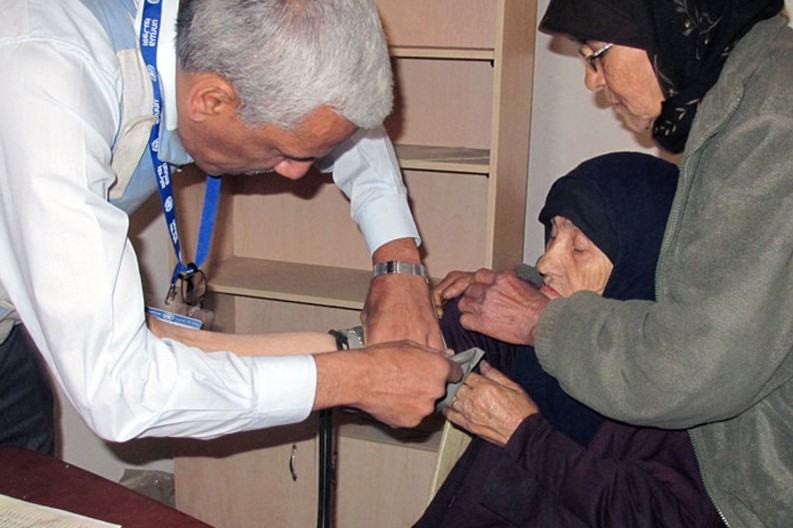Poverty compounding health challenges for Palestine refugees

Non-communicable diseases such as diabetes, hypertension, cancer and smoking-related ailments, account for the majority of the chronic health problems confronting Palestine refugees across the Middle East, a new report by the United Nations agency which supports them, has found.
According to the Director of Health at the UN Relief and Works Agency for Palestine Refugees (UNRWA), Akihiro Seita, these diseases account for as much as 80 per cent of fatalities.
The reason for the high number, he said, is “simply because they do not have access to healthy lives or in other words; poverty.”
UNRWA’s 2017 Annual Report on health looks at the overall picture across the agency’s five areas of operation – Jordan; Lebanon; the West Bank, including East Jerusalem; Gaza; and Syria.
Last year, around three million registered refugees received health services, amounting to 9.2 million consultations – all free of charge – at 143 UNRWA primary health care centres.
“Protecting and promoting the health of registered Palestine refugees, is at the heart of our mandate, enabling them to achieve the highest attainable level of health until a just and lasting resolution of the Palestine refugee issue is achieved,” said Dr. Seita.
The report also coincides with the 70th anniversary of the 1948 War that resulted in the mass displacement and dispossession of hundreds of thousands of Palestinians from their homes.
This year, the report also comes amid escalating tensions in the region and violent clashes in Gaza over the past two months, between Palestinian demonstrators and Israeli Security Forces along the border fence.
Quoting figures from the UN World Health Organization (WHO), Dr. Seita said that over 12,000 people have been injured in the weekly protests since late March.
“Out of 12,000, according to WHO, about 7,000 went to hospitals,” he said, of whom around 3,500 had gunshot wounds, he said.
The impact of the “extraordinary” number of injuries overwhelmed the limited health and medical services in the enclave, added the UNRWA official, noting that many people with gunshot wounds ended up at primary-care health centres, which are not equipped for major surgery or trauma services.
Source: UN News

WRITE YOUR COMMENT